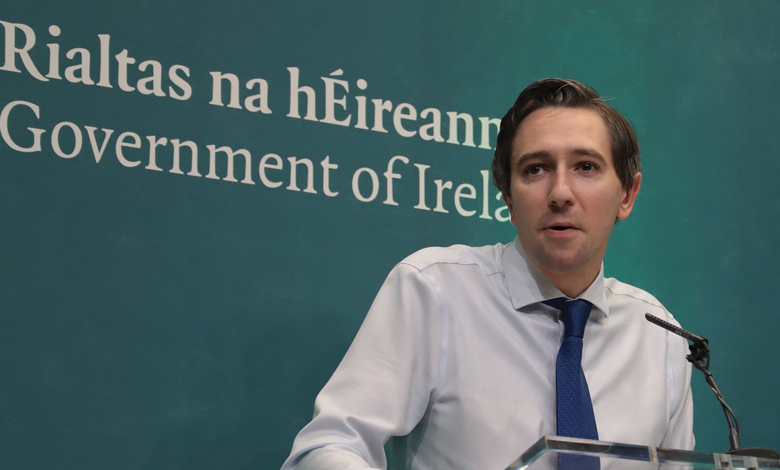What has happened to Sláintecare?

Although Sláintecare formally remains the Government’s flagship health policy, its impetus has increasingly receded over the course of the Government’s term.
Sláintecare was first proposed in 2017, during the Fine Gael minority government, following an Oireachtas report which outlined the need to establish a universal, single-tier healthcare system which can be accessed by all Irish citizens. The principles of the programme were supported by all of the major parties in the Dáil.
When Sláintecare was introduced by then Health Minister Simon Harris TD in 2017, the Fine Gael TD stated that it was viable that Ireland will have a fully universal healthcare system by 2030.
Ireland has the 15th most expensive healthcare system in the world, with an average spend on health of €5,547 per capita, ranking Ireland’s spending per capita on health higher than that of the United Kingdom in spite of the UK having a fully nationalised health service.
With progress of the implementation of Sláintecare having been curtailed by the natural phenomenon of the Covid-19 pandemic, 2021 saw the programme face further challenges with the resignation of three high-profile figures.
In her resignation, former Sláintecare chief executive Laura Magahy expressed her frustration at the slow pace of the implementation of the programme.
This sentiment was echoed by the resignation of Anthony O’Connor from the council of Sláintecare in late 2021, in which, in a letter to Minister for Health Stephen Donnelly TD, he stated that that the original culture of Sláintecare had been “bulldozed” and that the Government’s replacements were “incongruous” with the principles of the reforms.
Although the Department of Health published its Sláintecare Action Plan for 2023 in March, the loss of momentum in the implementation of the programme can be exemplified by the fact that Minister Donnelly, as of 14 December 2023, has mentioned Sláintecare to the Dáil on only seven occasions since March 2023 when the action plan was introduced.
Health challenges
In the Sláintecare Progress Report 2022, published in March 2023, the Department of Health states that it recognises that acute hospital scheduled care waiting lists are “far too long” and that many patients are waiting an “unacceptably long time” for care.
The report also states that 22 per cent of doctors, 27 per cent of dentists, and 22.5 per cent of pharmacists are aged over 55 and will be approaching retirement, on average, in the next 10 years.
The report asserts: “We need to significantly increase the number of training places available to Irish and EU students to study medicine, nursing and health and social care professional courses, in order to increase the domestic supply of doctors, nurses and health and social care professionals to work in our health service.”
In spite of this, Budget 2024, introduced by Finance Minister Michael McGrath TD on 10 October 2023, introduced a net cut in health spending of just under €1 billion when compared with Budget 2023 and real terms cut when compared with the Mid-Year Expenditure Report 2023, with the Sláintecare programme not being mentioned by any of the Government’s ministers.
Instead of sticking to a wider strategy on health reform, Sláintecare has become as a point of reference occasionally mentioned by Government ministers, but as those who have resigned from the Sláintecare council have opined, it has become less of a priority for the Department of Health as it instead seemingly sees the introduction of measures as the key to health success.
Responding to Budget 2024 in the Dáil, Independent TD Matt Shanahan accused the government of overseeing a “slow strangulation” of Sláintecare, adding that the Government was “forgetting that the Irish people were promised universal healthcare in 2011”.
“In 2017, Sláintecare was presented as a genuine, all-party attempt to renew and reform healthcare in Ireland. Yet, even before the pandemic, it looked as though it had been dumped in favour of projects,” Shanahan said.
Secretary General of the Department of Health, Robert Watt, said to the Oireachtas Health Committee on 24 October that there is a need for “better budgetary control, more efficiencies, and savings in the short term while continuing to deliver reforms on our health services”.
The Secretary General stated that Sláintecare “offers a roadmap for achieving this reform and productivity as we need to deliver greater amounts of care closer to home and promising more accessible health services at a lower cost”.
Sláintecare is formally still the overriding health policy of the Government, and it remains a government objective to see universal healthcare in Ireland by 2030. The loss of momentum for the initiative is undoubted given the disconnect between the measures recommended on recruitment in the Sláintecare Progress Report and the suite of measures announced in Budget 2024.




